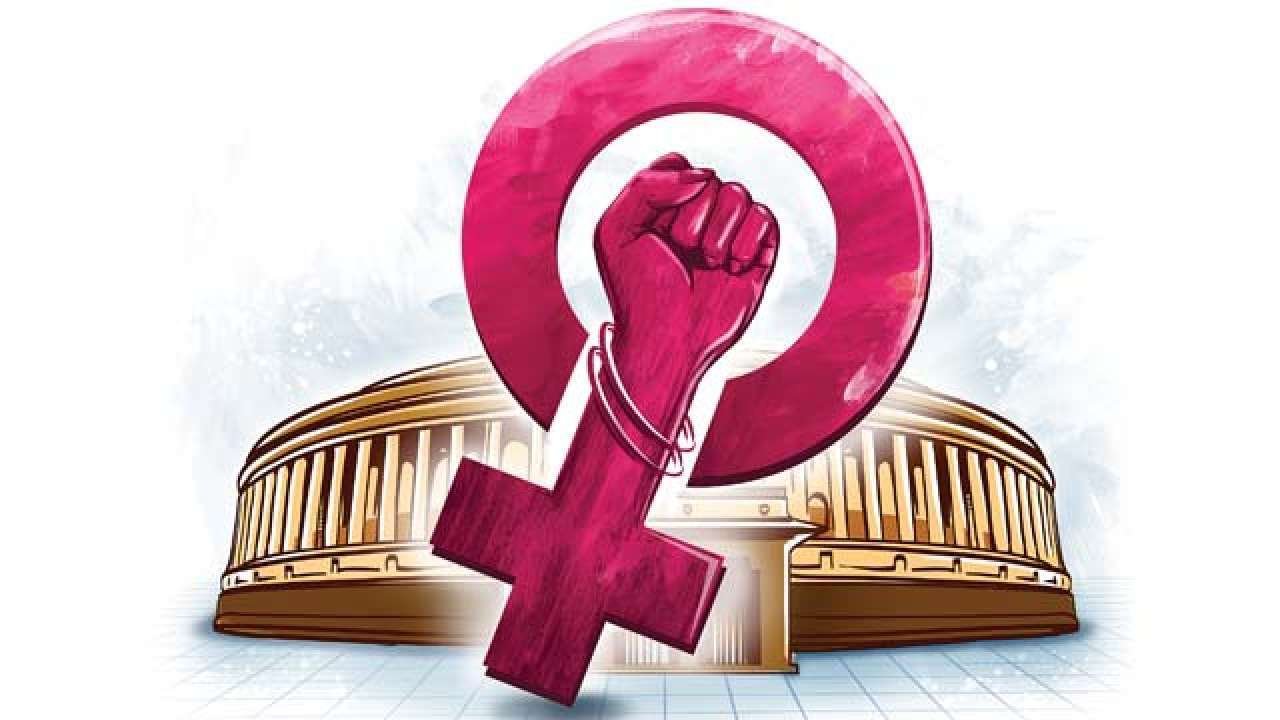
33% Reservation for Women in Lok Sabha and Assembly Seats
Why in News?
On June 11, 2025, the Government of India reiterated its intention to implement the Women’s Reservation policy—reserving 33% of seats in Lok Sabha and State Assemblies for women—starting from the 2029 General Elections.
The implementation will follow the completion of the delimitation process as mandated by the Nari Shakti Vandan Adhiniyam, 2023.
This makes the issue of women’s political empowerment and electoral reforms a prominent topic for CLAT Current Affairs 2026, as it relates to constitutional amendments, representation rights, and gender equity in governance.
Introduction
The Nari Shakti Vandan Adhiniyam, also known as the 128th Constitutional Amendment Act, was passed in September 2023 with a commitment to provide one-third reservation to women in:
- Lok Sabha (Lower House of Parliament)
- State Legislative Assemblies
- Delhi Legislative Assembly
However, the law’s implementation is conditional upon two major prerequisites:
- Delimitation of constituencies based on the new Census.
- Enactment following the publication of Census data, expected after 2026.
This makes the issue critical for legal, political science, and current affairs studies—key segments in online coaching for CLAT.
Point-wise Summary of the Article
- Government’s Announcement
- The Modi government plans to implement 33% reservation for women in the 2029 Lok Sabha elections.
- Sources say the Nari Shakti Vandan Adhiniyam will be implemented post-delimitation.
- Steps toward implementation will begin after the Census process is completed.
- The Role of Delimitation
- Delimitation refers to redrawing the boundaries of electoral constituencies.
- As per the 2023 Act, women’s reserved seats will rotate after each delimitation.
- The latest Census data is necessary to conduct this exercise accurately.
- This aligns with Article 82 and 170 of the Indian Constitution (provisions for readjustment after each Census).
- Legal Provisions Cited
- The move is grounded in the 128th Constitutional Amendment Act.
- The Act was passed in September 2023 and added a new clause for women’s reservation.
- Also includes sub-reservation for women from Scheduled Castes (SCs) and Scheduled Tribes (STs).
- What the Law Says
- One-third of total seats in Lok Sabha, state assemblies, and Delhi Assembly shall be reserved for women.
- Reserved seats will be rotated after every delimitation.
- Comes into effect only after Census and Delimitation Commission’s notification.
- Cannot be enforced before 2029 elections.
- Political and Electoral Implications
- Will significantly increase female representation in lawmaking bodies.
- May reshape party strategies, especially candidate selection and campaign policies.
- Encourages women’s political participation, breaking barriers to entry.
- Some critics argue that delaying implementation until 2029 weakens the reform’s urgency.
Notes on Key Terms and Concepts
Term | Explanation |
Nari Shakti Vandan Adhiniyam | The 128th Constitutional Amendment Act passed in 2023 to grant 33% reservation for women in legislatures. |
Delimitation | The process of redrawing electoral constituency boundaries based on population data (Census). |
Census | An official count of population conducted every 10 years to determine representation ratios. |
Rotation of Seats | Reserved seats for women will change (rotate) after each delimitation cycle. |
Sub-reservation | A quota within a quota; for example, reserving a portion of women’s seats for SC/ST women. |
Significance for CLAT 2026 Aspirants
This issue is crucial for aspirants under:
- Polity and Constitution: Amendment process, representation, legislative procedures.
- Gender Justice: Women’s rights, equality, and political participation.
- Governance: Electoral reforms, democratic deepening.
- Current Affairs 2026: This will be a key topic in GK sections.
Constitutional Relevance
- Amended Articles 330A and 332A through the 128th Amendment.
- Applies to:
- Lok Sabha
- State Assemblies
- NCT of Delhi
- Relies on Delimitation Commission Act for implementation logistics.
Broader Social Impact
- May serve as a role model policy globally.
- Empowers rural and underrepresented women to join politics.
- Can increase focus on women-centric policy issues (health, education, safety).
- Brings visibility to female leaders and role models for the next generation.
Criticism and Challenges
- Delay in implementation until 2029 raises questions about political will.
- Potential for tokenism if not accompanied by other reforms (e.g., political training, funding access).
- Issue of rotation may disincentivize long-term constituency engagement by women leaders.
Comparisons with Other Countries
- Rwanda: Over 60% women in Parliament due to constitutional quotas.
- Nepal, France, and Mexico: Use party-list or dual-gender nomination mandates.
- India’s approach is territorial reservation, which is unique but complex due to the delimitation dependency.
Way Forward
- Government must ensure timely Census completion and transparent delimitation.
- Parallel reforms like:
- Political party mandates
- Campaign finance support for women
- Grassroots political education for women
- Civil society and media should hold political leadership accountable to the timeline.
Final Thoughts for CLAT Gurukul Students
This is not just a law—it’s a landmark in India’s democratic journey. For those pursuing law with the best online coaching for CLAT, understanding the interplay of constitutional amendments, representation, and electoral design is non-negotiable.
At CLAT Gurukul, we train aspirants not only to memorize facts but to connect constitutional law with contemporary developments—and this story is a perfect example of that.
Stay prepared, stay informed, and let your preparation for CLAT Current Affairs 2026 reflect your understanding of democratic equity and justice.




